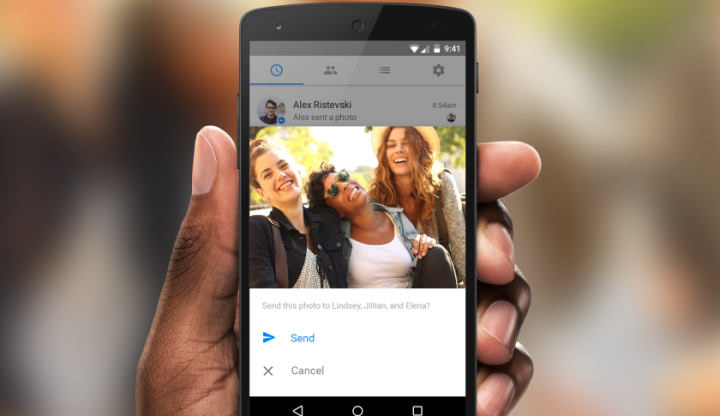
Facebook is currently testing the feature in Australia on Android iOS, before making it available in other countries, including the U.S. “What we’ve seen is that private sending of photos in Messenger is really popular,” Peter Martinazzi, director of product management, told TechCrunch. “About 9.5 billion photos were sent inside Messenger in the last month.”
In Facebook’s most recent report, the platform celebrated 1.4 billion users who check Facebook at least once a month via mobile, and 700 million users on Messenger. However, at the Code Conference over the summer, chief executive Evan Spiegel noted that of Snapchat’s nearly 100 million daily active users, 65 percent contribute content via images, video, and stories. Although Messenger continues to grow, Photo Magic competes with Snapchat, the app considered to be one of Facebook’s only real rivals.
In the TechCrunch article, Photo Magic is described as a feature using the same facial recognition technology Facebook uses for photo tagging suggestions. Like other features, you can disable the option, but otherwise you won’t have to hunt down and remind your friends to send you the selfies you took last night because Facebook will remind them for you. The new feature will actually scan your camera roll, and if it finds photos that include your friends, it will remind you to send the photo through Messenger, with the option to attach a message. If you choose to send the photo, it will appear in a group thread to everyone in the image that it recognizes.
Of the three main types of images sent through messenger — Selfies, What’s Up (images of the world around us), and photo-sharing with friends, Photo Magic is designed to address the sharing with friends purpose which requires stopping what you’re doing in the middle of an event to send the photos. Photo Magic is intended to eliminate that distraction by reminding you to instantly send the image, and allowing you to continue to live and enjoy life uninterrupted.


